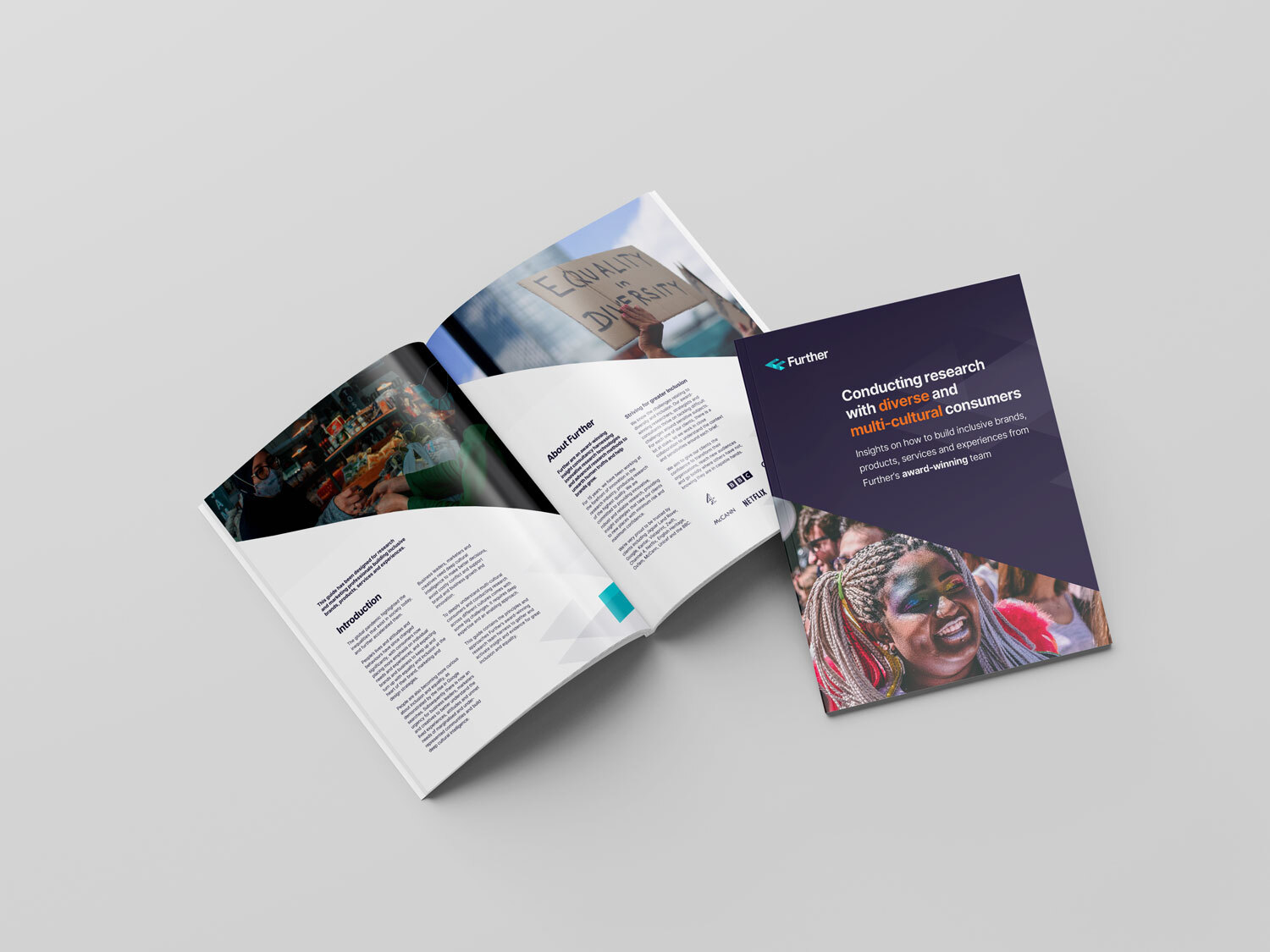One of the most important attributes for a research project manager to have would be the ability to execute any project with an unwavering view of the research objectives and how to best achieve them.
In order to deliver the best results, a market research project must be planned, scoped, and executed carefully. Ultimately, it is the research project manager who ensures that everyone (and everything, including all team members) stay on track. Project managers ensure that everyone has focus and remains accountable for their agreed responsibilities to guarantee the project's success.
Project managers are found in practically every industry and company, from financial services and software engineering to marketing and product development. The market research industry is no exception. Managing a successful research project depends on the inputs and outputs of dozens of elements.
If you are looking for your next challenge, to progress in your team, or just to hone your skills as a research project manager, then the following seven skills are must-haves:
1) Ask questions & challenge assumptions
Most market research projects involve many, many moving parts. A good research project manager must understand both the high-level details and the more granular aspects of any brief. You can’t come by this knowledge passively: it’s critical to seek it out by asking questions in order to identify assumptions that might turn into future problems.
A big part of project management is thinking about the possible risks and challenges which might arise on a project – by pre-empting these, you can mitigate the risks and hopefully avoid them altogether.
A good framework for structuring questions is to think about the:
- what,
- when,
- how,
- Who / how many, and,
- how much.
The what: fundamentally, what are we doing this study for? What are its aims and objectives? A client briefing is key from a project manager's perspective, more detail is always preferred over less. If you haven't got a client briefing document - you're welcome to download have ours!
The how. In research terms, this is the methodology (quantitative or qualitative). Examples: In-Depth Interviews (IDIs), surveys, or research communities.
The when. When must the project be delivered? There will be multiple milestones to think about and plan within a research project, such as briefing, design, fieldwork, analysis, reporting, and debrief. All of these aspects must be meticulously documented and planned out.
The who / how many. Who are we looking to speak to for this research, who is our target audience? What are the participant recruitment and screening requirements?
How much. What is the project budget? How does this translate in terms of allocation of cost for different aspects of the work, different tasks within the business (direct vs indirect costs) etc. If this hasn’t been thought about, it should!
2) Develop and document research project goals
The more granular you can be with milestones and outcomes, the better.
There’s the overarching research objective, but you should have subgoals within all aspects of the project, and these subgoals or milestones should always be written down and accessible to all relevant parties.
Documenting goals keeps things organized
Once you have a goal and its subset of milestones, it can be much easier to plan a work-back towards achieving the goal. Teams that have this information understand what they’re working toward, and how far they may be to achieving the goal.
Documenting goals allows for better project analysis
A market research project can be a complex beast. Reimagining it as a series of related and interconnected goals can help give it a shape, and allow you to find areas to improve. For example, if you notice that one team happens to have a disproportionate amount of goals piled up in one week, you’ve identified a potential bottleneck ahead of time.
Documenting goals create reusable templates
Your next project might benefit from reusing parts of a previous goal structure that worked well. This time-saving approach isn’t possible if you don’t have a good record of your goals!
3) Budgeting
A massively important part of the project management function is resource planning and budgeting.
Laissez faire attitudes can creep into many stages of the study, such as the all too common “As long as it gets delivered and the client happy, it’s okay!”
Projects need to be understood and scoped in terms of their financial performance, usually expressed as direct and net costs.
- Direct (gross) costs – what external costs need to be paid? Usually, these are to third parties such as recruiters or freelancers, but could also include costs such as equipment, venue hire, or travel expenses.
- Net costs – the cost of internal staff time. These are not as easy to measure as direct costs unless a business maintains timesheets (few do). However, by keeping an accurate track of time you can identify patterns around profitability.
Three budgeting tips:
1. Always request a formal set of costs from suppliers.
When doing this, include the full scope of the what, who, how, when—so they can tell you the ‘how much.’ If you have a firm and clear scope agreed with your client and they then try and change it, you have room to push back. But if you don’t, your agency may be forced to absorb any extra costs.
2. Negotiate preferred rates.
Look at how much you are spending with your suppliers and how much work goes their way.
3. Set up a costing or budget sheet for all projects.
This internal document lays out the charge to the client, and the budgeted direct costs. All of these costs ideally have been confirmed in a request for costs at the proposal stage. You then are clear on how much you have to work with for discussions with suppliers.
4) Be diligent and steadfast regarding sampling and screening
The biggest risk to the success of your research project (and the one with the biggest impact on cost recruitment.
To keep your project and budget on track it is imperative that recruitment goals are documented in writing, explained, discussed and understood.
The most common project management slips are in ‘who and how many’ (which impacts cost), and ‘when’ (which impacts cost and resource planning). If you speak to the wrong people the end result will be the wrong insight and more time will be wasted on finding replacement participants. If recruitment goes wrong thanks to incorrect specifications, the entire project may be derailed.
Your sample sources and screening criteria are the two key elements in preventing a recruitment mishap.
Keeping this under control involves:
- A thorough client briefing
- A form statement of work from the client
- An unbroken chain of communication and understanding for all involved teams
- Skill #2 (documentation of goals) is paramount! Write everything down and spend extra time making sure that everything is clear.
5) Always have a Plan B (and C… and D…)
Contingency plans are an absolute necessity for any project manager. Thinking about the possible risks and challenges associated with market research projects is half the battle. You must also have a clear response and approach to when (inevitably) you experience a setback.
Much of this comes with experience, but common pitfalls include:
- Scope creep. Someone wants just one extra thing. Someone makes a backchannel promise to look at X. One thing leads to another and it starts to snowball. Your original scope is now somehow 20% bigger.
- Underestimating the difficultly of the recruitment target. Using panels can be faster (and cheaper) than recruiting via a fieldwork agency but may not be right for all projects, consider this when building screeners and briefing your recruitment agencies or asking them for costs. Remember certain specs may be harder, faster, or slower than first assumed.
- Data protection and privacy. The world is increasingly more digital. Market research can make use of brilliant technology, but those technologies can come with their own set of challenges.
- Real life timing. Holiday periods or other events can throw a wrench into things if you’re not careful.
6) Communication skills
Thinking about your typical research project lifecycle, there are often large numbers of people involved:
- the client,
- client team,
- researchers,
- project managers,
- fieldwork execs,
- interviewing staff,
- 3rd party suppliers,
- And more (the list can be quite long).
With all these different people involved, it is important that teams talk to each other and that correct and necessary information is communicated at the various stages.
Sharpening your skills in various aspects of communication will help with navigating this maze.
Asynchronous communication
When you all can’t speak at the same time, there are many ways to keep the conversation going.
- Email is the most common. Avoid creating massive chains with everyone copied. Make use of highlighting or bolding to get key points across. Try to include specific next steps.
- Video messages. An often underused tool, short video messages can be way more effective than a long, dry email. Tools like Loom make creating and sending them easy.
Synchronous communication
Synchronous communication is a fancy term for a real-time call or a meeting. Making sure that meetings have clear agendas, goals, and boundaries makes all the difference. Avoid inviting people to a call who do not need to be there (a recording can be shared afterward).
Someone should always be taking meeting notes, and these notes should be reviewed and formatted in a consistent manner before being widely shared.
7) Expectation management
People are full of assumptions and preconceived notions. This goes for both internal and external stakeholders.
If you’re not explicit in what is expected of them or what to expect, they will absolutely invent an expectation. And if the project doesn’t meet that expectation, well, that’s when things can get tough.
If you’ve asked the right questions and have been documenting properly, expectations are much easier to manage. Clear communication, strong and thorough briefs, and making sure everyone in the chain signals understanding: these tactics will help make sure everyone is on the same page.
8) Have a knack for insights and data storytelling
Market research outputs must be actionable insights for clients, and those insights come from the intelligent capture, interpretation and analysis of data.
As the project manager, you are often a gatekeeper of information and an important quality assurance checkpoint. While you may not be the person in charge of the research study itself, you will touch most things that happen internally and get passed over to external clients.
Therefore, having an eye for insights and how to tell a story from data can elevate the entire project, as you can often take the role of:
- Simplify findings and data-points into key takeaways (e.g. for an executive summary)
- Be an extra set of eyes on the data before it changes hands
- Express the more technical (yet important) aspects of market research in client-friendly terms
Launch an online qual market research project with Further
The article above was inspired by the market research project managers here at Further. They are the beating heart of our organization. Whether you need help with study design, onboarding, platform training, or maximizing data management, we can ensure optimum respondent engagement, high-quality deliverables, and more insightful results.
We make it as easy as possible for you to DIY programme our platform, but it is a lot easier for us to program and optimize your study guide and let you take it from there. We offer you the option to manage your project yourself or to have one of our experienced project managers guide you, your clients, and your respondents through the entire process.
Our tutorials or live training are a fast and effective way for you and your clients to become more familiar with our platform. Check out our help centre here.
Learn more about how we can help with online qual market research here.





















%20(1).webp)

.webp)

%20(1).webp)

.webp)
.webp)
.webp)
.webp)
.webp)

.webp)
.webp)
.webp)
.webp)